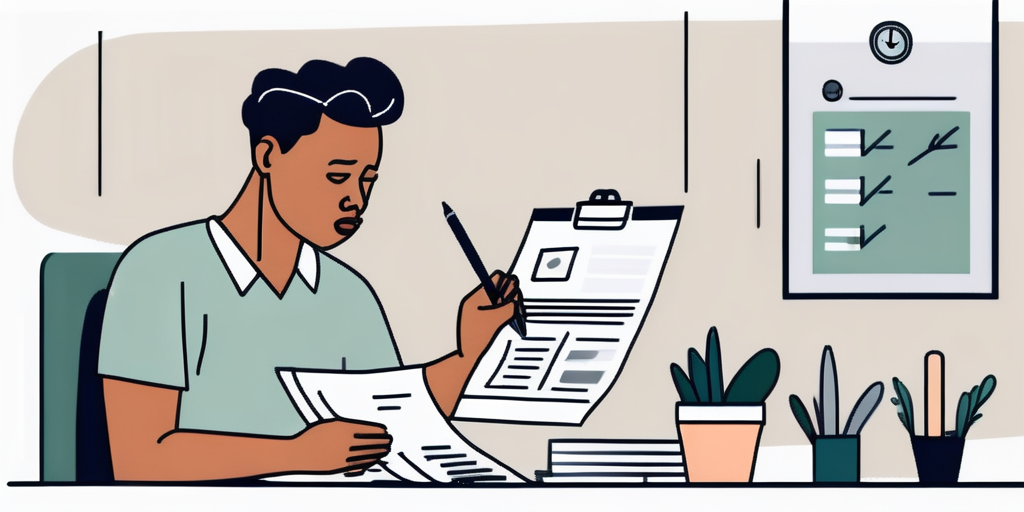Getting a notice that your insurance policy is non-renewed can be an unsettling experience. It’s important to understand why this happens and what steps you can take to navigate this situation effectively. In this article, we’ll delve into the details of insurance non-renewal and provide you with practical guidance on what you should do next.
Understanding Non-Renewal of Insurance Policies
Non-renewal occurs when your insurance company decides not to renew your policy at the end of its term. This means that your coverage will expire on the policy’s expiration date, and you’ll need to secure alternative insurance.
When faced with non-renewal, it’s important to understand the reasons behind this decision and how it may impact you. By gaining a deeper understanding of the basics of insurance non-renewal, you can navigate this situation effectively and ensure that you have the necessary coverage in place.
The Basics of Insurance Non-Renewal
Insurance non-renewal can happen for various reasons, and it’s crucial to be aware of these factors to better comprehend the situation. One possible reason for non-renewal is an increased risk exposure. If your insurance company determines that your risk profile has changed significantly since you initially obtained the policy, they may choose not to renew it.
Another factor that can lead to non-renewal is changes in the insurance company’s underwriting guidelines. Insurance companies regularly review and update their guidelines to ensure that they align with their risk tolerance and business objectives. If your policy no longer meets these updated guidelines, non-renewal may be the result.
Claims history also plays a significant role in non-renewal decisions. If you have filed a substantial number of claims within a specific period, your insurance company may view you as a higher risk and opt not to renew your policy. This is because a history of frequent claims can indicate a higher likelihood of future claims, which may not align with the insurer’s profitability goals.
Reasons for Non-Renewal
Understanding the reasons behind non-renewal can help you take appropriate steps to address the situation. One common reason for non-renewal is living in an area with a high risk of natural disasters. If you reside in an area prone to hurricanes, earthquakes, or wildfires, insurance companies may choose not to renew policies in order to mitigate their exposure to potential losses.
Policyholders who no longer meet the insurer’s criteria may also face non-renewal. Insurance companies establish specific criteria for policyholders, including factors such as credit score, claims history, and property condition. If you no longer meet these criteria, your insurer may decide not to renew your policy.
It’s important to note that non-renewal does not necessarily mean that you are uninsurable. While one insurance company may choose not to renew your policy, there are often other options available in the market. Shopping around for alternative insurance and working with an independent insurance agent can help you find coverage that meets your needs.
Non-renewal of insurance policies can be a challenging situation to navigate, but by understanding the basics and reasons behind it, you can take appropriate action. Being proactive in securing alternative insurance and seeking guidance from professionals in the industry can help ensure that you have the coverage you need to protect yourself and your assets.
Immediate Steps to Take After Non-Renewal
Receiving a non-renewal notice can catch you off guard, but there are immediate steps you can take to protect yourself.

Reviewing Your Non-Renewal Notice
When you receive a notice of non-renewal, review it carefully to understand the reasons behind the decision. Look for specific information such as the expiration date, contact details of your insurance provider, and any instructions they may have included.
Take the time to analyze the notice thoroughly. Pay attention to any details that may shed light on the situation. It is essential to grasp the full context of the non-renewal decision to effectively navigate the next steps.
Consider reaching out to a legal professional or insurance expert who can help you interpret the notice and provide guidance on your rights and options. They can offer valuable insights and ensure that you are well-informed throughout the process.
Contacting Your Insurance Provider
After reviewing the notice, it’s important to contact your insurance provider and seek clarification on the non-renewal decision. Ask questions to gain a clear understanding of the situation and explore any potential options or alternatives.
When contacting your insurance provider, remain calm and professional. Express your concerns and inquire about the possibility of resolving the issues that led to the non-renewal. Be prepared to provide any additional information or documentation that may support your case.
Remember to document all communication with your insurance provider, including the date, time, and details of each conversation. This record will serve as evidence and help you keep track of the progress made in resolving the non-renewal.
Consider requesting a written explanation of the non-renewal decision from your insurance provider. Having a documented response will provide you with a clear understanding of their rationale and can be useful if you decide to escalate the matter further.
Additionally, explore the possibility of appealing the non-renewal decision. Some insurance providers have an appeals process in place, which allows you to present your case and request a reconsideration. Familiarize yourself with the appeals procedure and gather any supporting evidence that may strengthen your argument.
Keep in mind that each insurance provider may have different policies and procedures regarding non-renewal. It is crucial to familiarize yourself with your specific provider’s guidelines to ensure you are following the correct steps.
Exploring Alternative Insurance Options
Once you’ve taken immediate steps, such as filing a claim and documenting the damage, it’s time to consider alternative insurance options. While your current insurance policy may provide coverage for the damages, it’s always a good idea to explore other options to ensure you have the best coverage at the most affordable price.
One of the first steps in exploring alternative insurance options is shopping around for new insurance policies. This involves contacting multiple insurance providers to get quotes and coverage details. It’s important to reach out to different providers as each may offer different rates and coverage options. By comparing the terms and premiums of various policies, you can find an option that suits your needs and budget.
When shopping for a new insurance policy, it’s essential to understand the different types of policies available. Each policy offers unique coverage features, limits, and exclusions. Some common types of insurance policies include:
- Homeowners Insurance: This type of insurance provides coverage for damages to your home and personal belongings caused by covered perils, such as fire, theft, or natural disasters.
- Auto Insurance: Auto insurance covers damages to your vehicle and liability for injuries or damages caused to others in an accident.
- Health Insurance: Health insurance helps cover medical expenses, including doctor visits, hospital stays, and prescription medications.
- Life Insurance: Life insurance provides financial protection for your loved ones in the event of your death.
Researching and understanding the different types of insurance policies is crucial to ensure you select the policy that fits your specific requirements. It’s recommended to consult with insurance agents who can provide guidance and answer any questions you may have. They can help you navigate through the complexities of insurance policies and assist you in making an informed decision.
Additionally, when exploring alternative insurance options, it’s important to consider factors such as deductibles, coverage limits, and any additional benefits or riders that may be available. By carefully reviewing and comparing these details, you can choose a policy that provides adequate coverage for your needs.
Remember, finding the right insurance policy is not just about finding the cheapest option. It’s about finding a policy that offers comprehensive coverage and peace of mind. Taking the time to research and explore alternative insurance options can help ensure that you are adequately protected in the event of unforeseen circumstances.
Legal Aspects of Insurance Non-Renewal
Understanding the legal aspects of insurance non-renewal is crucial for protecting your rights as a policyholder.

Your Rights as a Policyholder
As a policyholder, you have certain rights in the event of non-renewal. These rights vary from state to state, and it’s important to familiarize yourself with the regulations applicable in your jurisdiction. Your rights may include receiving a written explanation for the non-renewal and the ability to appeal the decision.
Filing a Complaint Against Non-Renewal
If you believe your non-renewal is unjustified or unlawful, you have the option to file a complaint against your insurance provider. Contact your state insurance department and provide them with the necessary information. They will guide you through the complaint process and investigate the matter.
Preventing Future Non-Renewal
While non-renewal can be a challenging situation, there are steps you can take to prevent it from happening again in the future.

Maintaining a Good Insurance Record
Building and maintaining a good insurance record is crucial to avoiding non-renewal. This includes making on-time premium payments, minimizing claims, and being proactive about risk reduction measures. By demonstrating your reliability as a policyholder, you increase your chances of policy renewal.
Regularly Reviewing Your Insurance Policy
To stay ahead of potential non-renewal issues, regularly review your insurance policy. Understand its terms, coverage limits, and any changes that may occur. This will allow you to address any concerns upfront and communicate with your insurance provider if needed.
In conclusion, receiving a non-renewal notice for your insurance policy can be unsettling, but it’s important to approach the situation calmly. By understanding the basics of insurance non-renewal, taking immediate steps, exploring alternative options, understanding your legal rights, and taking preventative measures, you can navigate this situation effectively and protect your interests as a policyholder.
